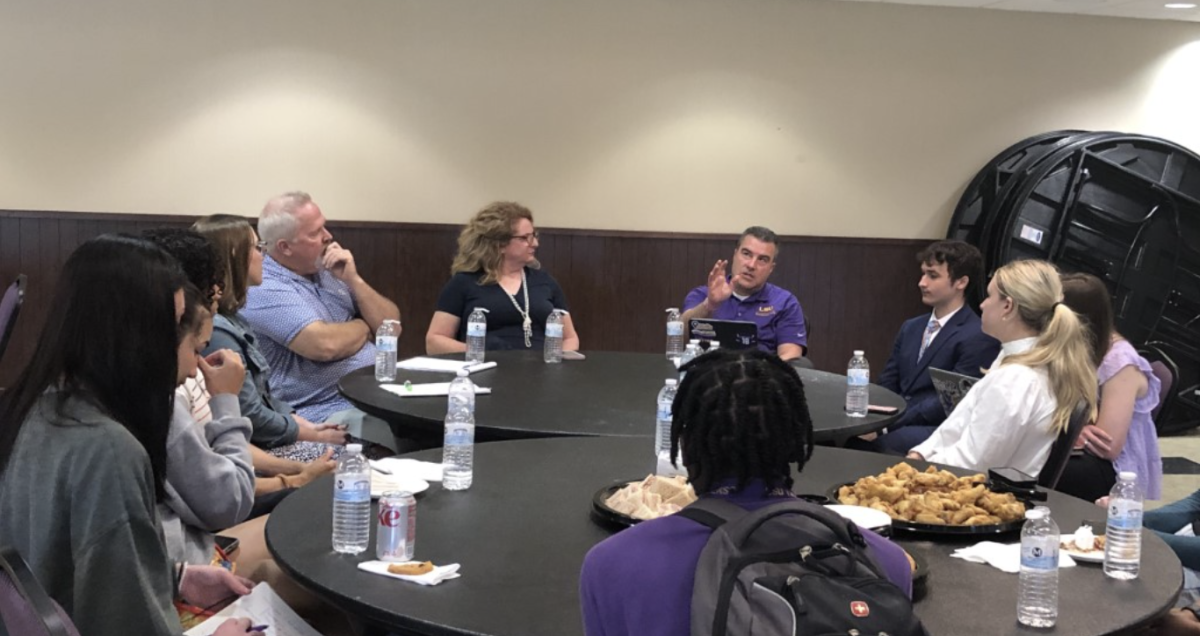LSU’s Disability Advocacy Council hosted a faculty panel on Thursday in the Student Union Magnolia room to bridge the knowledge gap between students, faculty and staff regarding campus accessibility.
Panelists spoke about their jobs on campus to ensure accessibility for all students with disabilities and answered questions about changes and additions that will be made to improve accessibility across campus.
Panelist Jennie Stewart, the Americans with Disabilities Act coordinator for LSU, explained accessibility as “[being] able to participate in a timely, meaningful way with equal access … The experience might be a little different, but the experience needs to happen, and that’s what access is.”
Recent infrastructure changes to enhance accessibility include leveling the surface of sidewalks, adding audible signals on Highland Road and incorporating ramps in most buildings, according to panelists. Braille signs are a planned addition within the next two months, according to panelist Danielle Mayeaux, a campus civil engineer.
LSU will undergo more changes after a self-study by an outside agency, and findings in the report will form the basis of a transition plan. After projects are prioritized, assessed for costs and funded, plans will be implemented, Stewart said.
“Accessibility is a matter of diversity, and our community is richer when we can include more people, more viewpoints, more limitations, challenges and gifts that people bring,” Stewart said. “So, I think the transition plan allows us to grow our community, to be more informed and to be more visible.”
Panelist Dennis Mitchell, a campus landscape architect, described the changes that will happen to Field House Drive in the future.
“That whole corridor, Field House Drive, is going to get blown up,” Mitchell said. “We are starting over. Everything — sidewalks, crosswalks, landscape. Everything is going to change.”
These updates are currently scheduled to be completed by summer 2024, and all enhancements such as lighting, bike-lanes, crosswalks and streetscapes will be ADA compliant, according to Mitchell.
Similarly, Mitchell explained the area that was once Kirby Smith Hall will be turned into a “beautiful green space, and every bit of it is compliant.”
When asked about the biggest misconception surrounding disability access, Stewart said it’s not only up to people with disabilities to request access changes, but also the university’s responsibility as well.
“We don’t want people to have to ask for accommodations,” Stewart said. “We want to design universally with forethought about how to include people.”
A new transportation project will launch this summer. A pair transit system will provide rides in smaller vehicles with close access for students registered for accommodations or with disability services.
Brooke Wrzyszczynski, a junior at LSU and the Disability Advocacy Council president, said she believes these changes will have a strong impact on campus.
“I hope people take away from this a hopeful and inspiring kind of perspective because there’s a lot of stuff in the works, and there’s so much that’s been done and so much to be done,” Wrzyszczynski said. “There’s so much to do in the future, and I think it’s a really inspiring thing to see.”
To request more information or ask further accessibility questions, students and faculty can go to the Disability Advocacy Council’s Instagram.






